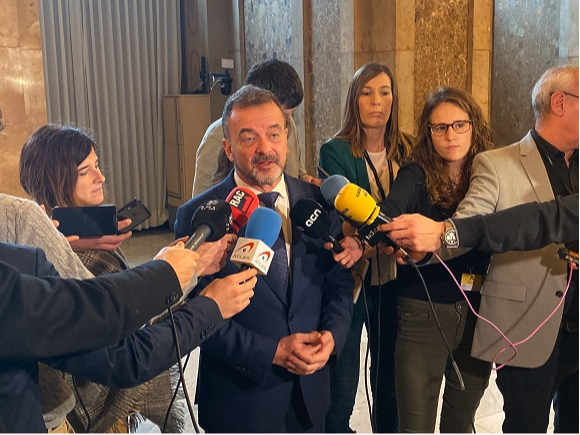- The minister was reacting to a report in El Mundo linking a Catalan contribution to the UN to an opinion issued by the Working Group on Arbitrary Detention
- The contribution of €150,000, made in response to a call for financial assistance from the UN, was used to protect human rights defenders in Colombia

The Catalan Minister for Foreign Action, Institutional Relations and Transparency, Alfred Bosch, has denied a report published in the Spanish newspaper El Mundo that draws a connection between a contribution by the Catalan government to the Office of the United Nations High Commissioner for Human Rights (OHCHR) and the content of an opinion on the Catalan political prisoners issued by the Working Group on Arbitrary Detention (WGAD). The WGAD, which reports to the UN Human Rights Council, issued two decisions, one in May and the other in July, calling for the release of Oriol Junqueras, Jordi Cuixart, Jordi Sànchez, Joaquim Forn, Raül Romeva, Josep Rull and Dolors Bassa. “Anyone who calls into question the opinion of an independent working group and links its decisions to donations that the government of Catalonia has made to the UN doesn’t understand how international bodies work or what they do,” the minister told reporters at the Catalan parliament.
The donation referred to in the El Mundo article was made in response to a call by the Office of the UN High Commissioner for Human Rights for voluntary contributions to supplement its budget, which covers only 40% of its activity. In this context, the Government of Catalonia made a contribution of €150,000 in 2019. “The claim that Catalonia, with such a modest contribution, has a greater ability to influence decisions than the Spanish state makes no sense,” said Bosch.
The Catalan government’s contribution was used by the OHCHR to carry out its mandate in the protection of human rights defenders and other actors linked to the peace process in Colombia. “We believe in defending human rights, not only in Catalonia but everywhere,” said Bosch, noting that defending human rights is a priority in the Catalan government’s development cooperation policy, and that this involves, among other measures, hosting human rights defenders from countries such as Colombia and Mexico. The minister said that under the Catalan Programme for the Protection of Human Rights Defenders, Catalonia is currently hosting three defenders, and that “the government’s goal is to increase that number after the new budget has been passed”. The Catalan government’s voluntary donation to the UN body was to help fund “assistance and monitoring of these individuals after they return to their country”, said Bosch.
In 2017, the Office of the United Nations High Commissioner for Human Rights received €143 million in voluntary donations from member states. Spain contributed over €1 million last year, as did over 80 other countries. Catalonia’s donation in 2019 is just one of the financial contributions the Catalan executive has made to the UN body over many years. “Since 2005, Catalonia has been contributing on a fairly regular basis, as is our duty, and that’s something we’re proud of,” said Bosch, citing as another example a €100,000 contribution that the executive made to the OHCHR in 2016.